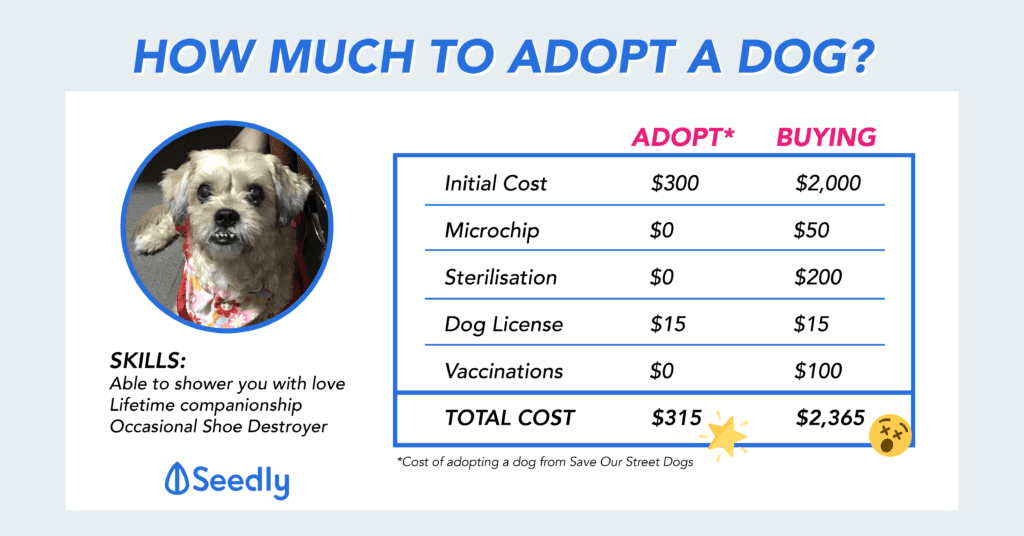Table of Contents
Looking to bring a furry companion into your life? Look no further than this comprehensive guide on buying a dog in Singapore. Whether you’re a local resident or an expatriate, this article will navigate you through the process of finding and purchasing your perfect four-legged friend in this bustling city-state. From understanding the local regulations to choosing the right breed for your lifestyle, we’ve got you covered. So, get ready to embark on this exciting journey and bring home your new best friend!
Researching Dog Breeds

Consider Your Lifestyle and Preferences
When researching dog breeds, it’s essential to consider your lifestyle and personal preferences. Think about your daily routine, activity level, and the amount of time you can dedicate to caring for a dog. Different breeds have varying exercise needs, temperament, and grooming requirements. For example, if you’re an active person who enjoys outdoor activities, you might want to consider breeds like Labrador Retrievers or Border Collies. On the other hand, if you have a more laid-back lifestyle, a smaller breed like a Shih Tzu or a Bichon Frise might be a better fit. By reflecting on your lifestyle and preferences, you’ll be able to narrow down the list of potential dog breeds that suit you best.
Research Different Breeds
Once you have a rough idea of the type of dog that would fit well with your lifestyle, it’s time to research different breeds. Look into each breed’s characteristics, such as their size, energy level, exercise needs, and grooming requirements. Consider whether you want a purebred or a mixed breed and learn about the distinct traits and characteristics of each breed. Some breeds are known for being good with children or other pets, while others may have a tendency to be more independent or protective. By conducting thorough research, you’ll be able to make an informed decision about which breed is the best match for you.
Take Note of Breed-Specific Considerations
Certain breeds may have specific considerations that you need to keep in mind. For example, brachycephalic breeds like Bulldogs or Pugs have short snouts, which can lead to breathing difficulties. These dogs may require extra care during hot weather or intense physical activity. Other breeds, such as Huskies or Malamutes, have a thick double coat, which means they may not be suitable for Singapore’s tropical climate unless they have access to air-conditioning or are groomed regularly. Understanding these breed-specific considerations is crucial to ensure the well-being and happiness of your future furry companion.
Consider the Breed’s Temperament
The temperament of a dog can significantly impact your experience as a dog owner. Some dogs are more laid-back and easygoing, while others are more high-strung and energetic. It’s essential to be honest with yourself about what you can handle in terms of a dog’s temperament. If you live in an apartment with close neighbors, for example, you might want to avoid breeds that are prone to excessive barking or separation anxiety. On the other hand, if you’re an experienced dog owner who enjoys training and engaging in activities with your canine friend, a more energetic and trainable breed might be a good fit. Consider your lifestyle, experience, and preferences when evaluating a breed’s temperament.
Look for Breeds that Suit Your Living Arrangement
Your living arrangement is another important factor to consider when choosing a dog breed. If you live in an apartment or a small house with limited outdoor space, you’ll want to look for breeds that are more adaptable to smaller living spaces. Smaller breeds like Chihuahuas or Shih Tzus are often well-suited to apartment living as they require less exercise and can be indoor dogs. However, if you live in a house with a spacious backyard, you may have more flexibility in terms of size and energy level. Breeds like Golden Retrievers or German Shepherds are known for their love of the outdoors and can thrive in a larger living environment. Consider how much space you have and choose a breed that will be comfortable and content in your specific living arrangement.
Finding Reputable Breeders
Ask for Recommendations
One of the first steps when looking for a reputable dog breeder is to ask for recommendations. Talk to friends, family members, or colleagues who have recently purchased a dog from a breeder. They can provide valuable insights into their experience, the breeder’s professionalism, and the health and temperament of their dog. Personal recommendations are often a reliable way to find trustworthy breeders as you’ll have firsthand information from someone you know and trust. If you’re part of any local dog owner or enthusiast groups, consider asking for recommendations there as well. The more recommendations you gather, the better your chances of finding a reputable breeder.
Do Online Research
In addition to personal recommendations, it’s crucial to conduct your own online research. Look for breeders’ websites or social media pages where they share information about their breeding program, their dogs, and any accolades or certifications they may have. Read reviews and testimonials from previous customers to get a sense of the breeder’s reputation. If you come across any red flags or negative reviews, it’s best to proceed with caution or consider other breeders. Reputable breeders will prioritize the health and well-being of their dogs, provide proper care and socialization, and be transparent about their breeding practices. Use online research as a tool to gather as much information as possible before making any decisions.
Check Accredited Breeder Directories
Another resource to consider when finding reputable breeders is accredited breeder directories. These directories are often maintained by kennel clubs or breed-specific organizations and can be a valuable source of information. Accreditation from these organizations ensures that the breeder adheres to specific standards and guidelines for responsible breeding practices. By choosing a breeder listed in an accredited directory, you can have confidence that they are committed to producing healthy and well-socialized puppies. Take the time to explore these directories and make a list of breeders who meet your criteria. This will help you narrow down your options and focus on contacting those who have the best reputations and credentials.

Attend Dog Shows and Events
Attending dog shows and events is not only a fantastic way to enjoy the company of fellow dog enthusiasts, but it’s also an opportunity to meet reputable breeders. Many breeders showcase their dogs at these events, allowing you to see their breeding program in action and interact with their dogs. Take the time to engage in conversations with breeders, ask questions, and gather information. Pay attention to how breeders present and care for their dogs. Reputable breeders will be passionate about their breed, knowledgeable about their history and characteristics, and genuinely interested in finding the best homes for their puppies. Dog shows and events can be a great networking opportunity, so don’t hesitate to make connections and establish relationships with breeders you resonate with.
Visit Local Pet Shops
While pet shops may not be the most common way to find reputable breeders, some pet shops in Singapore do work with responsible and ethical breeders. It’s essential to be cautious and do thorough research when considering purchasing a dog from a pet shop. Visit the pet shop and observe the conditions in which the dogs are kept. A reputable pet shop will prioritize the well-being of their animals and ensure they are properly cared for, adequately socialized, and have undergone necessary veterinary checks. Ask the pet shop staff for information about the breeder, including their credentials, breeding practices, and any health certifications. If the pet shop is unable to provide such information or is evasive, it’s best to look elsewhere. Only consider purchasing a dog from a pet shop if you are confident in their partnership with reputable breeders.
Considering Adoption
Visit Animal Shelters
If you’re open to the idea of adopting a dog, visiting animal shelters is a great way to start your search. Animal shelters are often filled with lovable and deserving dogs of all ages, sizes, and breeds. By visiting a shelter, you have the opportunity to interact with the dogs, get to know their personalities, and see if there’s a connection. Many shelters have dedicated staff and volunteers who can guide you through the adoption process, answer your questions, and provide insights into each dog’s background, health, and behavior. Keep in mind that dogs in shelters are often in need of a second chance, and by adopting, you are giving them a loving forever home.
Consider Adopting a Rescued Dog
In addition to animal shelters, consider adopting a rescued dog. Rescued dogs are typically placed in foster homes or rescue organizations, where they receive necessary medical care, rehabilitation, and socialization before being adopted. These dogs may have come from challenging backgrounds, such as neglect or abuse, but they still have the capacity to form strong bonds and become beloved family pets. Rescued dogs often have a higher need for patience, understanding, and training, but the reward of seeing them flourish and overcome their past is immeasurable. By adopting a rescued dog, you are not only providing them with a loving home but also supporting the efforts of rescue organizations in Singapore.
Check Adoption Requirements
Each animal shelter or rescue organization may have specific adoption requirements that you’ll need to meet. These requirements are in place to ensure that the dog is matched with a suitable and responsible owner. Some common adoption requirements include being of a certain age, having the means to provide proper care, and agreeing to regular veterinary check-ups and vaccinations. Adoption requirements may also include home visits or interviews to assess the compatibility between you and the dog. Familiarize yourself with the adoption requirements of the shelter or organization you choose and ensure that you meet the criteria before proceeding with the adoption process.
Understand Adoption Fees and Processes
Adoption fees and processes can vary between shelters and rescue organizations. It’s important to understand the adoption fees associated with adopting a dog. These fees are often used to cover the costs of medical care, vaccinations, sterilization, and overall care for the dogs in the shelter or rescue organization. Some shelters may also provide additional services such as microchipping or obedience training as part of the adoption package. Take the time to inquire about the adoption fees and processes involved to ensure that you are financially prepared and aware of what to expect.
Ask for Medical Records and Behavioral History
When considering adopting a dog, it’s crucial to ask for their medical records and behavioral history. Knowing about any pre-existing health conditions, vaccinations received, or medications administered will help you provide the necessary care and anticipate any potential health issues. Additionally, a dog’s behavioral history is essential in understanding their past experiences, traumas, or training needs. This information will aid in providing appropriate training, socialization, and behavioral support to help the dog adjust to their new home. A reliable shelter or rescue organization will be transparent and willing to provide you with all the necessary information to ensure a smooth transition for both you and the dog.
Understanding Legal Requirements
Research Dog Ownership Laws in Singapore
Before bringing a dog into your home, it’s crucial to familiarize yourself with the dog ownership laws in Singapore. The Agri-Food & Veterinary Authority of Singapore (AVA) is the governing body responsible for regulating dog ownership in the country. They have specific guidelines regarding licensing, registration, vaccination, and responsible pet ownership. It’s essential to visit the AVA website or contact them directly to understand the legal requirements involved in dog ownership. By complying with these laws, you can ensure a safer, more responsible ownership experience.
Check if Your Housing Allows Dogs
If you are living in rented accommodation or a private property, it’s important to check if your housing allows dogs. Some housing developments or landlords have specific rules or restrictions when it comes to pet ownership. Review your tenancy agreement or speak with your landlord to determine if you are permitted to have a dog in your home. If you live in a Housing Development Board (HDB) flat, you can only keep certain approved breeds of dogs. It’s essential to be aware of these restrictions to avoid any potential legal or housing issues in the future.
Understand License and Registration Requirements
In Singapore, all dogs are required to be licensed and registered with the AVA. Licensing ensures that your dog can be easily identified and returned to you if they go missing. To obtain a license, you’ll need to follow the application process outlined by the AVA, which typically includes providing proof of sterilization (unless exempted), vaccination records, and paying the necessary fees. Additionally, it’s important to register your dog with the AVA, providing essential information such as your contact details, the dog’s breed, and any distinguishing marks. By fulfilling these license and registration requirements, you are not only meeting legal obligations but also taking proactive steps to protect your dog’s welfare.
Familiarize Yourself with Leash and Muzzle Laws
In Singapore, there are laws in place regarding dog leashing and muzzling in public spaces. Understanding these laws is crucial to ensure the safety of your dog and others around you. Dogs must be leashed and under control when in public areas, including parks and common spaces. This helps prevent dog-related incidents and ensures that everyone can enjoy public spaces without fear or harm. Additionally, certain breeds or types of dogs may be required to wear a muzzle when in public, even if leashed. Familiarize yourself with these leash and muzzle laws to avoid any potential fines or legal consequences.
Learn about Mandatory Vaccinations
To protect your dog’s health and the health of the community, certain vaccinations are mandatory for dogs in Singapore. The AVA requires that all dogs receive the core vaccinations against diseases such as distemper, parvovirus, and hepatitis. Puppies typically receive a series of vaccinations followed by regular booster shots throughout their lives. These vaccinations not only protect your dog from potentially life-threatening diseases but also prevent the spread of diseases to other dogs. It’s essential to work closely with your veterinarian to ensure that your dog receives the necessary vaccinations and stays up to date with their vaccination schedule.
Assessing the Health of the Dog
Observe Physical Appearance and Behavior
When meeting a dog for the first time, it’s important to observe their physical appearance and behavior. Look for signs of good health, such as clean eyes and ears, shiny coat, and a healthy weight. The dog should be alert, responsive, and show interest in their surroundings. Keep an eye out for any signs of discomfort, such as excessive itching, coughing, or limping. Additionally, observe their behavior towards you and others, including their level of friendliness, confidence, or hesitance. While initial observations can provide some insights, it’s important to remember that a more comprehensive health assessment should be conducted by a veterinarian.
Ask for Health Certificates
Reputable breeders and shelters will often provide health certificates for their dogs. These certificates are issued by a veterinarian and document the dog’s overall health and any specific medical procedures they have undergone. Health certificates often include information about vaccinations, deworming, microchipping, and any previous health concerns. Asking for and reviewing these health certificates can provide you with peace of mind and confidence in the dog’s current health status. If a breeder or shelter is unable or unwilling to provide health certificates, it may be a red flag, and you should reconsider your options.
Check for Genetic Health Issues
Some dog breeds are known to be predisposed to certain genetic health issues. These can include hip dysplasia, heart conditions, eye diseases, or skin allergies, among others. When researching dog breeds, familiarize yourself with the common genetic health issues that can affect them. When considering a specific dog, ask the breeder or shelter about any known genetic health issues within the dog’s bloodline. Reputable breeders will regularly conduct health tests on their breeding dogs to ensure that they are not passing on any genetic health issues to their puppies. By being aware of potential genetic health issues, you can be prepared for any future care or treatment that may be required.
Consider Getting a Vet’s Opinion
While breeders and shelters can provide valuable information about a dog’s health, it’s always a good idea to seek a veterinarian’s opinion. A veterinarian will conduct a thorough physical examination, checking vital signs, joint mobility, dental health, and overall body condition. They can also perform additional tests, such as blood work or X-rays, to assess the dog’s internal health. A veterinarian’s expertise and professional opinion will help you make an informed decision about the dog’s current and future health. If possible, schedule a veterinary visit before finalizing any adoption or purchase to ensure that you have a complete understanding of the dog’s health status.

Inquire about Medical History
When adopting or purchasing a dog, it’s essential to inquire about their medical history. Ask the breeder or shelter about any previous medical treatments, surgeries, or ongoing health concerns the dog may have. Understanding the dog’s medical history will help you provide appropriate care and anticipate any potential health issues that may arise in the future. If the dog has any chronic conditions or requires special care, ensure that you are prepared and able to meet their specific needs. Clear communication with the breeder or shelter is key to obtaining accurate medical history and ensuring the well-being of your future furry companion.
Meeting and Interacting with the Dog
Arrange a Meeting with the Breeder or Shelter
Once you’ve narrowed down your options and are interested in a specific dog, it’s important to arrange a meeting with the breeder or shelter. Meeting the dog in person allows you to observe their behavior, temperament, and overall compatibility. It also gives you an opportunity to ask any additional questions and address any specific concerns you may have. During the meeting, take note of how the dog interacts with you and their surroundings. A reputable breeder or shelter will be accommodating and supportive during this process, as they want to ensure that their dogs are going to loving and responsible homes.
Observe the Dog’s Behavior and Temperament
During your meeting with the dog, observe their behavior and temperament. Pay attention to how they respond to new people, new environments, and any potential triggers. Some dogs may be outgoing and enthusiastic, while others may be more reserved or shy. Keep in mind that a dog’s behavior can vary depending on their comfort level and previous socialization experiences. Ask the breeder or shelter staff for insights into the dog’s behavior and any potential challenges or training needs. Understanding the dog’s behavior and temperament will help you evaluate their compatibility with your lifestyle and ensure a smooth adjustment to their new home.
Interact with the Dog in Different Environments
In addition to meeting the dog at the breeder’s or shelter’s location, it’s beneficial to interact with them in different environments. This can include taking the dog for a short walk, spending time in a public park, or even visiting your own home if possible. By observing the dog’s behavior in various settings, you can assess their adaptability and comfort level. Some dogs may thrive in busy environments, while others may feel overwhelmed or anxious. The more interactions you have with the dog in different environments, the better you’ll be able to determine if they are the right fit for your lifestyle and living arrangements.
Evaluate Compatibility and Connection
When considering a specific dog, it’s important to evaluate the compatibility and connection between you and the dog. Do you feel a natural bond or connection with the dog? Are you both comfortable and at ease in each other’s presence? Compatibility and connection are crucial aspects of a successful human-dog relationship. While it’s normal for there to be an adjustment period as you get to know each other, trust your instincts and evaluate if you can provide the love, care, and attention the dog needs. Dogs are intuitive animals, and they can often sense our energy and emotions. By assessing compatibility and connection, you’ll have a better sense of whether this dog is the right fit for you and your family.
Ask About Socialization and Training
When meeting with the breeder or shelter, be sure to ask about the dog’s socialization and training history. Dogs benefit greatly from positive socialization experiences during their formative months. Ask if the dog has been exposed to different environments, people, animals, and everyday sounds. Additionally, inquire about any training or obedience work that has been done with the dog. Dogs that have received well-rounded socialization and basic training are more likely to adapt easily to new situations, follow basic commands, and have a positive interaction with their human family. A dog’s socialization and training history can greatly influence their behavior and integration into your household, so it’s essential to gather as much information as possible.
Considering Costs and Budgeting
Calculate the Cost of Owning a Dog
Before bringing a dog into your home, it’s important to calculate the cost of owning a dog. Dogs require financial resources for food, grooming, medical care, toys, training, and other essentials. Consider the costs related to dog ownership, including recurring expenses and potential unforeseen expenses. Understanding the financial commitment involved will help you budget accordingly and ensure that you can provide for your dog’s needs throughout their life. Be prepared for the long-term financial responsibility that comes with dog ownership.
Consider Initial Expenses
In addition to ongoing expenses, there are several initial expenses to consider when bringing a dog into your home. This includes the cost of purchasing or adopting the dog, veterinary check-ups, vaccinations, spaying or neutering, microchipping, and purchasing essential supplies like a collar, leash, crate, and food bowls. Depending on the breed and the individual dog’s needs, there may be additional expenses such as puppy training classes or specialized equipment. By budgeting for these initial expenses, you can ensure a smooth transition for both you and your new furry companion.

Budget for Ongoing Costs
Dogs require ongoing care and maintenance throughout their lives. Food, grooming, training, routine veterinary check-ups, and preventive medications are just a few examples of the ongoing costs of dog ownership. The size of the dog, their breed, and any specific health requirements will influence the ongoing costs. Larger dogs may require more food and grooming products, while certain breeds may be prone to specific health issues that require additional veterinary care. By budgeting for ongoing costs, you can ensure that you can consistently provide for your dog’s needs throughout their life.
Factor in Emergency Veterinary Care
While we hope that our dogs stay healthy throughout their lives, it’s essential to factor in the possibility of emergency veterinary care. Accidents, injuries, and sudden illnesses can happen, and the cost of emergency veterinary care can be significant. It’s recommended to set aside an emergency fund specifically for your dog’s healthcare needs. This will provide you with peace of mind and ensure that you can provide immediate care for your dog in case of an emergency.
Research Insurance Options
Pet insurance can be a valuable tool to help manage the costs of veterinary care. Consider researching insurance options and comparing different policies to find one that suits your needs and budget. Pet insurance can help alleviate the financial burden associated with unexpected medical expenses, ensuring that you can provide the best possible care for your dog without worrying about the cost. Remember to read the terms and conditions of each policy carefully, including any exclusions or limitations. Insurance can be a worthwhile investment that provides both financial security and peace of mind.
Preparing Your Home for a Dog
Dog-Proof Your Living Space
Before bringing a dog into your home, it’s important to dog-proof your living space. This involves identifying and minimizing potential hazards or items that can be harmful to a dog. Start by securing cabinets and electrical outlets, removing toxic plants from accessible areas, and covering or securing loose cords or wires. Additionally, store chemicals, cleaning products, medications, and any other potentially harmful substances out of reach of your dog. Just as you would baby-proof your home, dog-proofing ensures the safety and well-being of your new furry family member.
Create a Safe and Comfortable Environment
Dogs require a safe and comfortable environment to thrive. Provide access to cozy bedding, such as a dog bed or crate, where your dog can rest and relax. Ensure that there are designated areas for food and water, away from high-traffic areas. Install baby gates or use exercise pens to create boundaries and prevent access to certain areas of your home if needed. Remember to consider your dog’s specific needs when creating their environment, such as providing adequate shade and fresh water if they spend time outdoors. A safe and comfortable environment will help your dog feel secure and at ease in their new home.
Purchase Essential Supplies
To properly care for your dog, it’s important to have the necessary supplies on hand. This includes food and water bowls, a collar and leash, identification tags, grooming tools, toys, and bedding. Research the specific needs of your chosen breed to determine any breed-specific supplies that may be required. Additionally, consider purchasing interactive toys or puzzle games to mentally stimulate your dog and provide hours of entertainment. Having all the essential supplies ready will ensure a smooth transition for your dog and allow you to focus on building a strong bond with them.
Set Up a Suitable Sleeping Area
Dogs need a designated sleeping area where they can retreat and relax. This can be a crate, a dog bed, or a quiet corner in your home. Ensure that the sleeping area is comfortable, clean, and adequately sized for your dog. Provide blankets or bedding that are easily washable and consider using soothing scents or pheromone diffusers to promote relaxation. A suitable sleeping area will become your dog’s safe haven, where they can rest and recharge while feeling secure and loved.
Establish House Rules and Routines
Establishing consistent house rules and routines is important for both you and your dog. Dogs thrive on routine and predictability, so having a set schedule for meals, walks, playtime, and rest will help them feel balanced and secure. Consistent house rules, such as where your dog is allowed to go, what furniture they can or cannot access, and how they should behave around guests, will help set clear boundaries and facilitate better behavior. Communicate these rules and routines to all family members to ensure consistency and promote a harmonious living environment for both you and your dog.
Finalizing the Purchase or Adoption
Negotiate Terms and Agreement
When finalizing the purchase or adoption of a dog, it’s important to negotiate and agree upon the terms with the breeder or shelter. This includes discussing any health guarantees, return policies, or ongoing support that the breeder or shelter may offer. Clarify any questions or concerns you have regarding the dog’s breeding, health, or previous care. Open and transparent communication will help ensure that both parties are on the same page and that everyone’s expectations are met.
Review All Documentation
Before completing the purchase or adoption, carefully review all documentation provided by the breeder or shelter. This may include health certificates, medical records, adoption agreements, or any other relevant paperwork. Pay attention to any warranties, guarantees, or responsibilities outlined in the documentation, and seek clarifications if needed. Make sure you understand and agree with all the terms and conditions before signing any agreements or making any payments.
Make Necessary Payments
Once all terms have been agreed upon and all documentation has been reviewed, it’s time to make the necessary payments. This may include the purchase or adoption fee, any additional charges for health certifications, or spaying/neutering services, if applicable. Ensure that all financial transactions are conducted securely and ask for receipts or proof of payment. If possible, use traceable methods of payment, such as bank transfers or cashier’s checks, to maintain a record of your transactions.
Arrange for Transportation or Pick-up
If you are purchasing a dog from a breeder located outside of your immediate area, it’s important to arrange for transportation or pick-up. Coordinate with the breeder to determine the best method and timing for transporting the dog. Whether it’s arranging for a pet transport service or personally picking up the dog, ensure that the journey is safe and comfortable for the dog. Plan your logistics in advance, considering factors such as travel distance, weather conditions, and any necessary travel documentation or permits. If you are adopting from a local shelter, coordinate with them regarding pick-up details and any necessary paperwork.
Prepare for the Dog’s Arrival
Before bringing your new dog home, make sure you have everything ready for their arrival. Set up their sleeping area, prepare their food and water bowls, and have an ample supply of food and treats on hand. Block off any areas that are off-limits or that may pose a safety risk to your new furry friend. Familiarize yourself with the daily routine and schedule established during your meeting with the breeder or shelter. Be prepared to dedicate time and attention to help your dog settle into their new environment. Welcoming a new dog into your home is an exciting time, so ensure that you are prepared and ready to provide them with a warm and loving welcome.
Caring for Your Dog
Provide Proper Nutrition and Diet
One of the most important aspects of caring for your dog is providing them with proper nutrition and a balanced diet. Consult with your veterinarian to determine the appropriate type and amount of food for your dog based on their age, size, and activity level. Ensuring that your dog receives a nutritionally balanced diet will contribute to their overall health, energy level, and longevity. Avoid feeding your dog table scraps or excessive treats, as these can lead to obesity and other health problems. Remember to provide fresh water at all times, and if you have any concerns about your dog’s diet, consult your veterinarian for guidance.
Exercise and Mental Stimulation
Regular exercise is crucial for keeping your dog physically fit, mentally stimulated, and emotionally balanced. The amount and type of exercise required will vary based on your dog’s breed, age, and energy level. Some breeds require more vigorous exercise, such as running or playing fetch, while others might be content with shorter walks. Aim to provide a mix of physical activities, mental stimulation through puzzle games or training, and opportunities for socialization with other dogs. Regular exercise not only supports your dog’s physical health but also helps prevent behavior problems caused by pent-up energy.
Grooming and Hygiene Practices
Maintaining proper grooming and hygiene practices is essential for your dog’s overall health and well-being. Regular brushing helps keep their coat clean and free from mats, while also reducing shedding. Bathing your dog as needed can help remove dirt and odors, but be cautious not to overdo it as excessive bathing can strip the natural oils from their skin. Additionally, check your dog’s ears regularly for signs of infection or buildup of wax and trim their nails to prevent discomfort or injury. Remember to consult your veterinarian or a professional groomer for guidance on specific grooming needs based on your dog’s breed and coat type.
Regular Veterinary Check-ups
Regular veterinary check-ups are an essential part of caring for your dog. Schedule routine visits with your veterinarian to ensure that your dog receives necessary vaccinations, preventive medications, and overall health assessments. These check-ups are an opportunity to address any concerns you may have and to receive professional guidance on diet, exercise, behavior, and any other aspects of your dog’s health and well-being. Regular veterinary care plays a crucial role in detecting and preventing potential health issues, ensuring that your dog leads a happy and healthy life.
Training and Socialization
Training and socialization are key components of responsible dog ownership. Enroll your dog in puppy training classes or work with a professional dog trainer to establish basic obedience skills and good behavior habits. Training not only helps your dog become a well-mannered companion but also strengthens the bond between you and your dog. Socialization is equally important and involves exposing your dog to various people, animals, and environments so that they learn to navigate the world confidently and appropriately. By investing time and effort into training and socialization, you can help your dog become a happy, well-adjusted member of your family and community.
Bringing a dog into your life can be a wonderfully rewarding experience filled with love, companionship, and joy. By thoroughly researching dog breeds, finding reputable breeders or adoption options, understanding legal requirements, assessing the dog’s health, meeting and interacting with the dog, considering costs and budgeting, preparing your home, finalizing the purchase or adoption, and providing ongoing care, you’ll be well-equipped to provide a loving home for your new furry friend. Remember, dog ownership is a long-term commitment, and by making informed decisions and investing in your dog’s well-being, you’ll build a lifelong bond and create cherished memories together.




